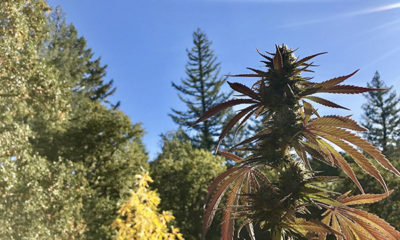
Joint Opinions
What Cannabis Legalization Opponents Have Right
Amid the distortions and tired lies, legalization foes are speaking one truth: commercial cannabis isn’t working as promised.
After a years long, near-unopposed and near-perfect victory parade through the West and the Northeast, cannabis legalization is now on a losing streak.
And now that the movement-turned-industry is staring at obstacles apparently isn’t prepared to solve, anti-legalization prohibitionists are capitalizing. For once, they have an honest point that commercial cannabis can’t honestly counter: legalization hasn’t really been all that good for the people it promised to help the most.
New Jersey Gov. Phil Murphy’s campaign promise to legalize recreational marijuana in his first 100 days in office is now more than 365 days overdue. After state lawmakers abandoned this year’s proposed legalization scheme earlier this spring, legalizing in 730 days is no guarantee.
Next door, in New York State, an industry-friendly legalization proposal floated by Gov. Andrew Cuomo as part of his annual budget proposal was also ditched after a revolt in the New York State Assembly. Lawmakers of color watched other states legalize on promises of “righting the wrongs of the drug war” only to watch cannabis become a well-capitalized white man’s game — and decided that they had had enough of empty promises and wanted a guarantee.
“They thought we were going to trust that at the end of the day, these communities would be invested in,” said Assembly Leader Cheryl Peoples-Stokes in a March New York Times interview. “But that’s not something I want to trust.”
Now Illinois Gov. J.B. Pritzker is hoping he has the secret sauce. Like his counterpart in New Jersey, Illinois’s first-term governor, sworn in this year, also promised to legalize marijuana on the campaign trail. Earlier this month, Pritzker’s allies in the state legislature unveiled a proposal that would legalize possession of up to 30 grams of cannabis for anyone 21 or over, expunge low-level cannabis convictions, and also set up a low-interest loan program for people of color interested in joining the cannabis industry.
But as the Chicago Tribune reported, like his counterparts in New York and New Jersey, Pritzker — a hereditary billionaire whose also-wealthy relatives, scions to the Hilton hotels family fortune, helped fund Prop. 64 in California, one of the successful legalization ballot initiatives — is also having a tough time winning over lawmakers of color, who are also wary of legalization’s overpromises.
Never one to waste a crisis, familiar faces like Smart Approaches to Marijuana, arguably the nation’s most prominent anti-legalization group, have arrived on the scene. SAM is known for its willingness to lie or dial up outrage — last fall, Kevin Sabet, SAM’s founder and director, told a Kentucky state legislature committee the old “fentanyl in cannabis” fib — but for once they’re right on.
As per the Tribune:
Abu Edwards, national director for Smart Approaches to Marijuana, said the proposal benefits “white men in suits who work on Wall Street.”
“This is about creating a big business that African-Americans are not going to have the capital to get into,” said Edwards, who is African-American. “It’s not about a person smoking a joint, this about big corporate greed coming into our communities and benefiting off of addiction in our communities.”
Well — and he’s mostly right! Cannabis isn’t very addictive and certainly is not very addictive compared to other drugs. Nationwide, only 138,000 people sought help for cannabis use in 2015, according to the National Institutes on Drug Abuse; compare that to the estimated 2.5 million Americans who have an opiate-use problem.
But it’s hard to argue the “big corporate greed” point. Consolidation and corporatization is absolutely happening. Former House Speaker John Boehner, who hated weed until he realized he could make money off of it, is selling cannabis stock tips and taking huge fees to lobby Congress. The point is particularly hard to argue in Illinois, where several existing big-time medical-marijuana companies have been lobbying Prtizker to get first and only dibs in the recreational market.
Pritzker appears to get it. His proposal has the automatic expunging of past offenses, which is a step up from states like California, where jurisdictions like San Francisco had to hire coders to write algorithms to do the expunging. And some kind of equity program for entrepreneurs baked into the bill is also an improvement. Will it work? Remains to be seen, but in the meantime, the cannabis industry has absolutely given its opponents an opening. It’s not just and it’s not equitable, and it needs to address this in a hurry if it wants to be taken seriously — and resume its once inevitable-looking winning ways.
TELL US, do you think the cannabis industry can ever be fair?





















